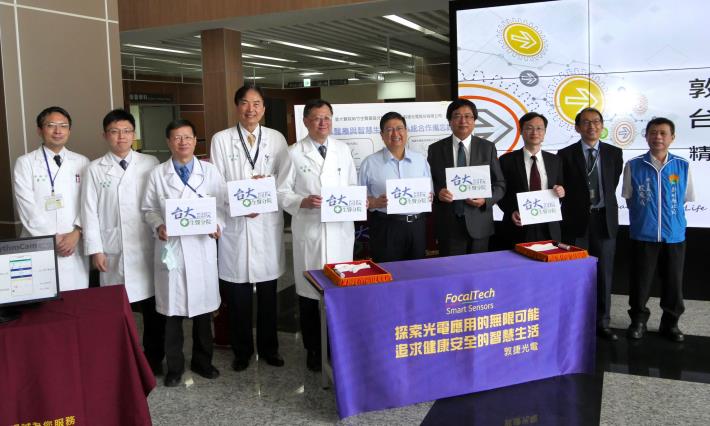
Everyone has its own cellphone nowadays. Every modern person has a cell phone. Using the optical lens of a mobile phone, the National Taiwan University Hospital Hsinchu Biomedical Park Branch and Focaltech Smart Sensors Co., Ltd have jointly developed a software that can perform smart physiological measurement and arrhythmia screening at any time. The software allows users to better understand their own physiological information and identify potential arrhythmia to enable early diagnosis and early treatment. It also combines with the smart medical cloud system and uses the physiological measurement system to establish a smart platform for disease screening and precision medicine. On July 13, Superintendent Chong-Jen Yu of National Taiwan University Hospital and Chair of Board Liao Chun-Chieh of FocalTech Smart Sensors, a subsidiary of FocalTech Systems Co., Ltd, signed a memorandum of cooperation on precision medicine and smart physiological monitoring systems. Mayor Yang Wen-Ke and Director General Wayne Wang of the Hsinchu Science Park Bureau were also invited to speak at the event. At the event, a demonstration machine was provided to simulate operations so that everyone could experience the application of smart medical care.
According to Mayor Yang, since the National Taiwan University Hospital Hsinchu Biomedical Park Branch operated at the end of last year, medical resources have gradually been put in place. This time, with the combined advantages of the hospital and FocalTech Smart Sensors, the public can have access to more convenient medical care. The perfect integration of smart technology and medical care also highlights the close integration of National Taiwan University Hospital Hsinchu Biomedical Park Branch and Hsinchu Biomedical Science Park. The integration also fully fulfills the function of the Clinical Transfer Center of the branch hospital. Any new drug or technology development in the Hsinchu Biomedical Science Park can be put into clinical trials in the Biomedical Branch of National Taiwan University Hospital, with successful outcomes benefitting the county residents. This is a new milestone in the collaborative efforts of enterprises to develop smart medical software and hardware.
In the future, people can use this technology to monitor their conditions at home at any time. The information can also be sent back to the mobile phone of their doctors for immediate interpretation and diagnosis so that patient problems can be quickly solved. Chairman Liao said the company has extended its past expertise into medical care, opening up another domain for the company. Although the blueprints are different, the development has brought greater growth to the company. To find potential patients and reduce their risk of concurrent diseases, long-term and comprehensive health information collection and analysis are needed.